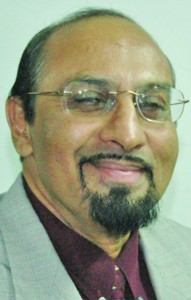Former Magistrate K A Juman Yassin has repeated a call for government to establish a comprehensive drug rehabilitation programme in Guyana. Speaking during a recent interview, Yassin stated that Guyana is far away from having such a programme, despite severe criticism over the years.
In its 2013 International Narcotics Control Strategy Report released last week, the United States said Guyana lacks a robust demand reduction strategy that adequately addresses drug rehabilitation.




